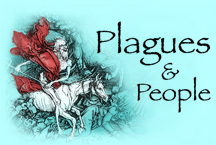| It was so cold when they first came from the rocket into the night that
Spender began to gather the dry Martian wood and build a small fire....
In the flare that lighted the thin air of this dried-up sea of Mars
he looked over his shoulder and saw the rocket that had brought them all,
Captain Wilder and Cheroke and Hathaway and Sam Parkhill and himself, across
a silent black space of stars to land upon a dead, dreaming world....
[M]any of them were hoping, perhaps, that the other expeditions had
failed and that this, the Fourth, would be the one....
[Spender] fed the fire by hand, and it was like an offering to a dead
giant. They had landed on an immense tomb. Here a civilization
had died. It was only simple courtesy that the first night be spent
quietly....
There was a touch of fire across the sky, and an instant later the auxiliary
rocket landed beyond the camp. Spender watched as the small port
opened and Hathaway, the physician-geologist -- they were all men of twofold
ability, to conserve space on the trip -- stepped out. He walked slowly
over to the captain.
"Well?" said Captain Wilder.
Hathaway gazed out at the distant cities twinkling in the starlight.
After swallowing and focusing his eyes he said, "That city there, Captain,
is dead and has been dead a good many thousand years. That applies
to those three cities in the hills also. But that fifth city, two
hundred miles over, sir--"
"What about it?"
"People were living in it last week, sir."
Spender got to his feet.
"Martians," said Hathaway.
"Where are they now?"
"Dead," said Hathaway. "I went into a house on one street.
I thought that it, like the other towns and houses, had been dead for centuries.
My God, there were bodies there. It was like walking in a pile of
autumn leaves, Like sticks and pieces of burnt newspaper, that's
all. And fresh. They'd been dead ten days at the outside."
"Did you check other towns? Did you see anything alive?"
"Nothing whatever. So I went out to check the other towns.
Four out of five have been empty for thousands of years. What happened
to the original inhabitants I haven't the faintest idea. But the
fifth city always contained the same thing. Bodies. Thousands
of bodies."
"What did they die of?" Spender moved forward.
"You won't believe it."
"What killed them?"
Hathaway said simply, "Chicken pox."
"My God, no!"
"Yes. I made tests. Chicken pox. It did things to
the Martians it never did to Earth Men. Their metabolism reacted
differently, I suppose. Burnt them black and dried them out to brittle
flakes. But it's chicken pox, nevertheless. So York and Captain
Williams and Captain Black must have got through to Mars, all three expeditions.
God knows what happened to them. But we at least know what they unintentionally
did to the Martians."
"You saw no other life?"
"Chances are a few of the Martians, if they were smart, escaped to the
mountains. But there aren't enough, I'll lay you money, to be a native
problem. This planet is through."
Spender turned and went to sit at the fire, looking into it. Chicken
pox, God, chicken pox, think of it! A race builds itself for a million
years, refines itself, erects cities like those out there, does everything
it can to give itself respect and beauty, and then it dies. Part
of it dies slowly, in its own time, before our age, with dignity.
But the rest! Does the rest of Mars die of a disease with a fine
name or a terrifying name or a majestic name? No, in the name of
all that's holy, it has to be chicken pox, a child's disease, a disease
that doesn't even kill children on Earth! It's not right and it's
not fair. It's like saying the Greeks died of mumps, or the proud
Romans died on their beautiful hills of athlete's foot! If only we'd
given the Martians time to arrange their death robes, lie down, look fit,
and think up some other excuse for dying. It can't be a dirty, silly
thing like chicken pox. It doesn't fit the architecture; it doesn't
fit this entire world!.... |

